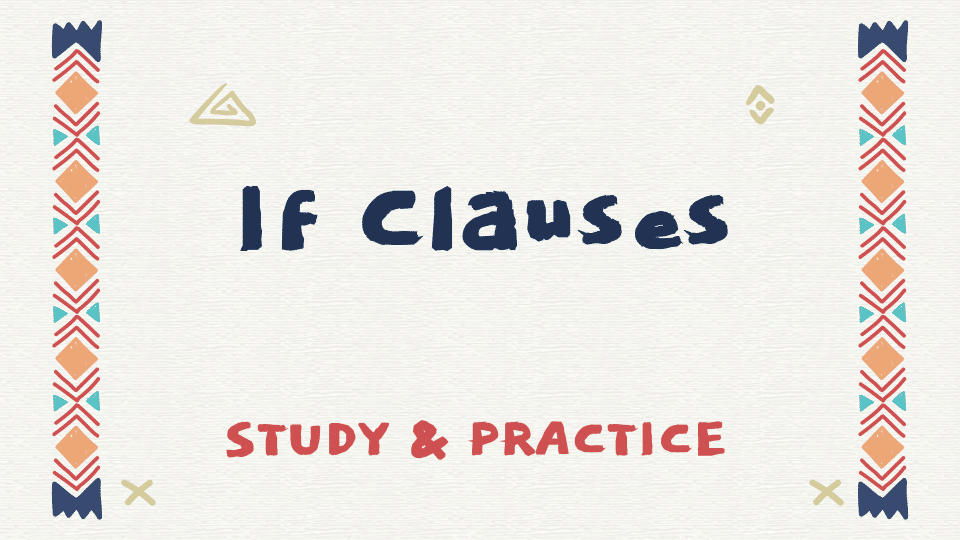
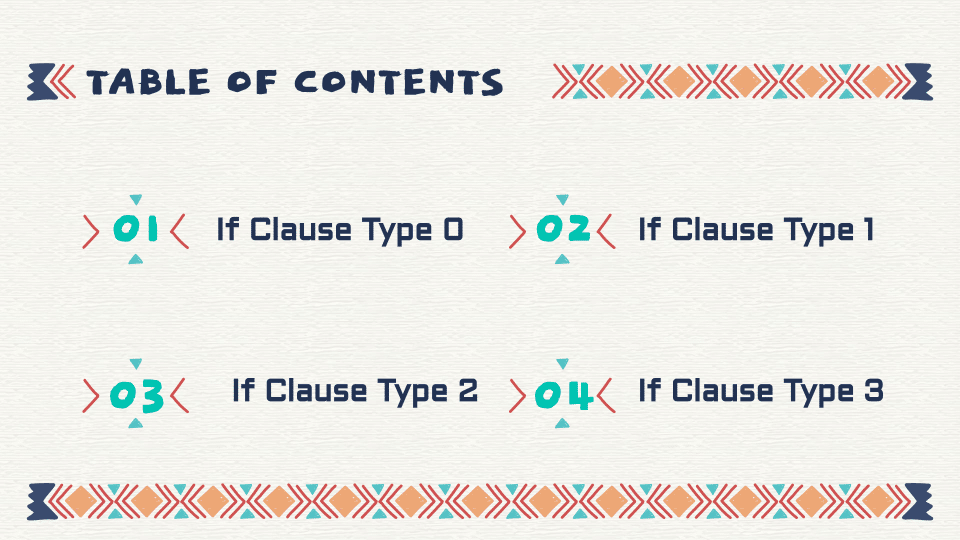
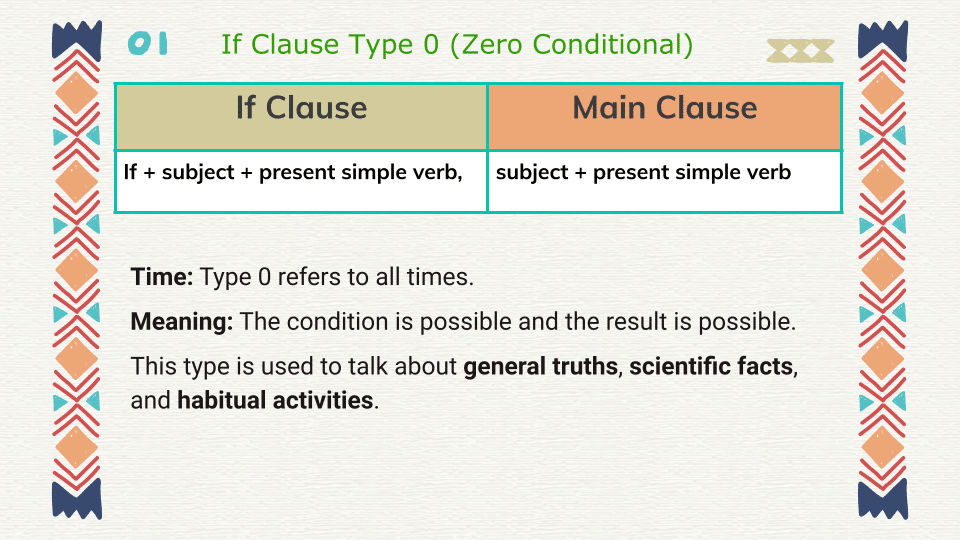
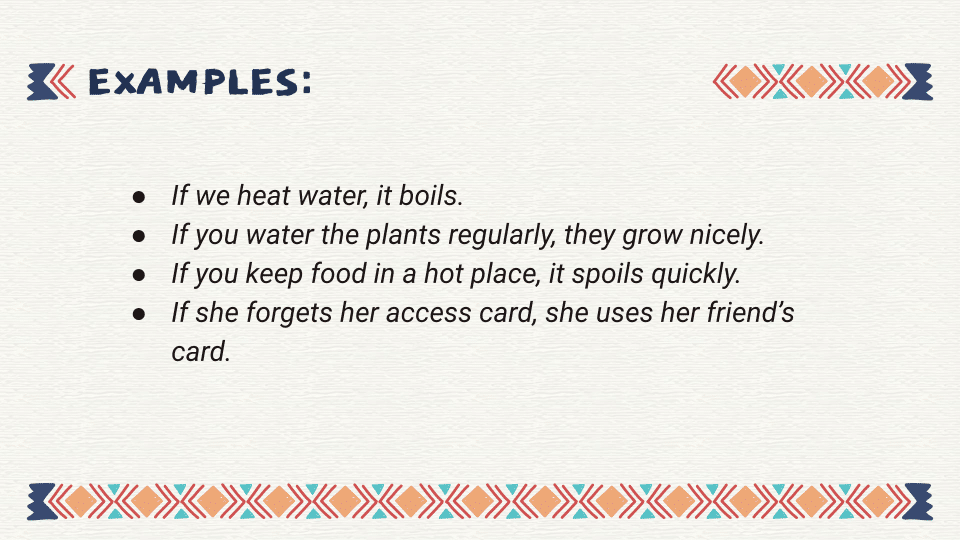
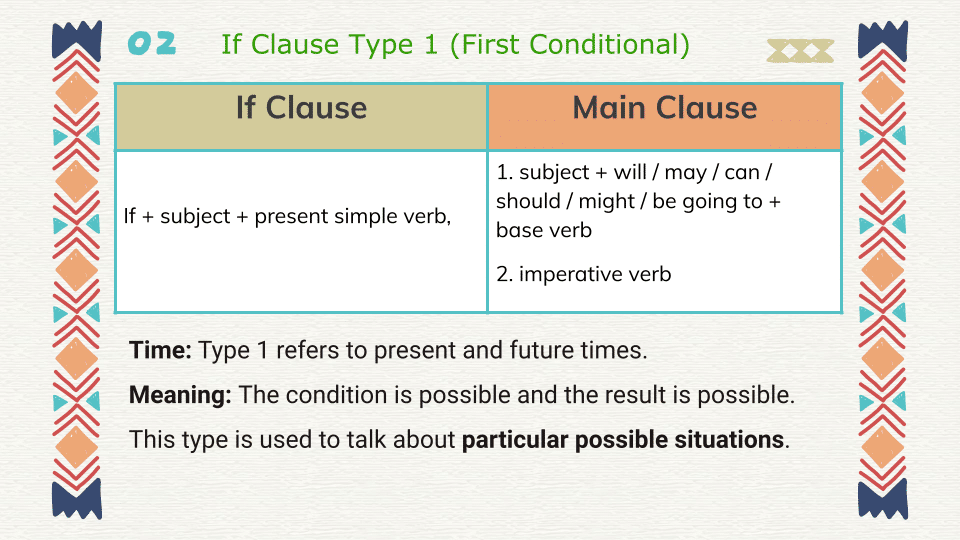
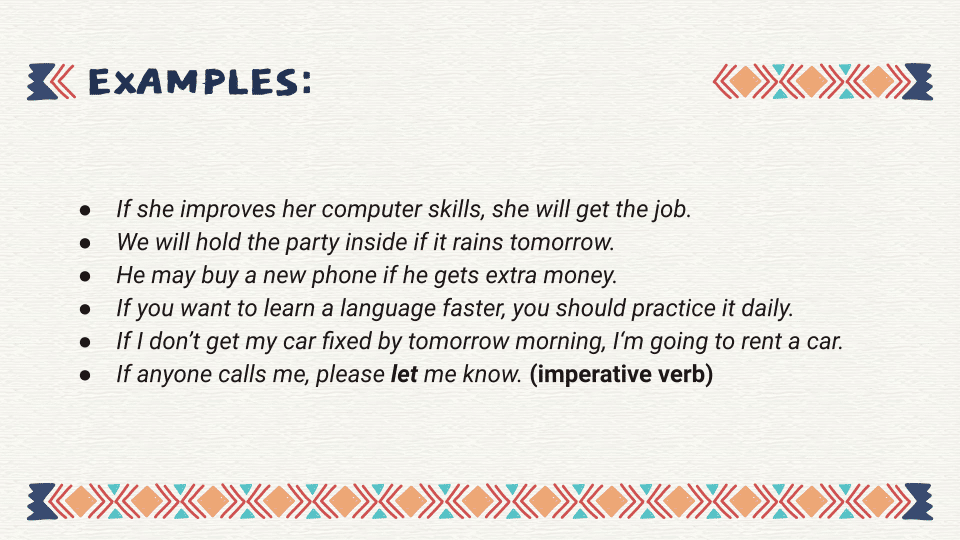
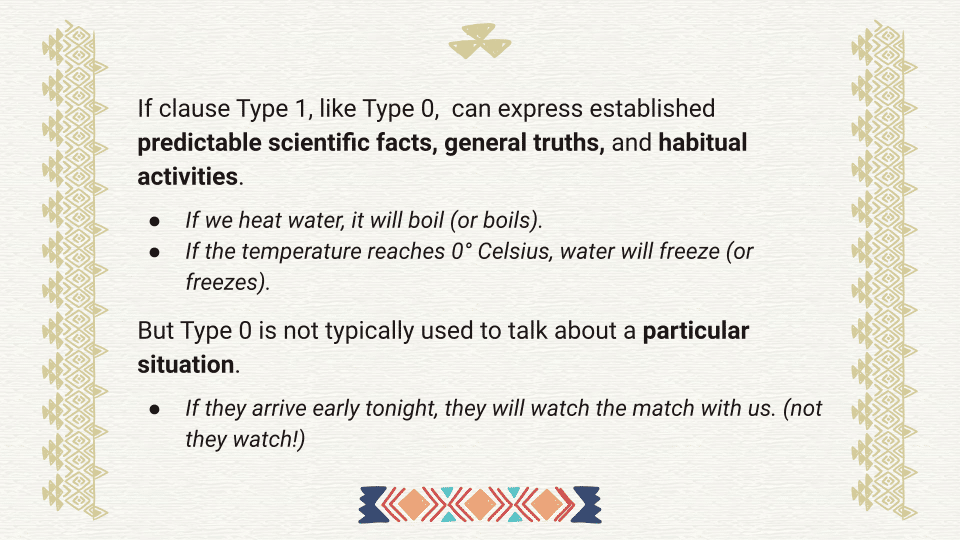
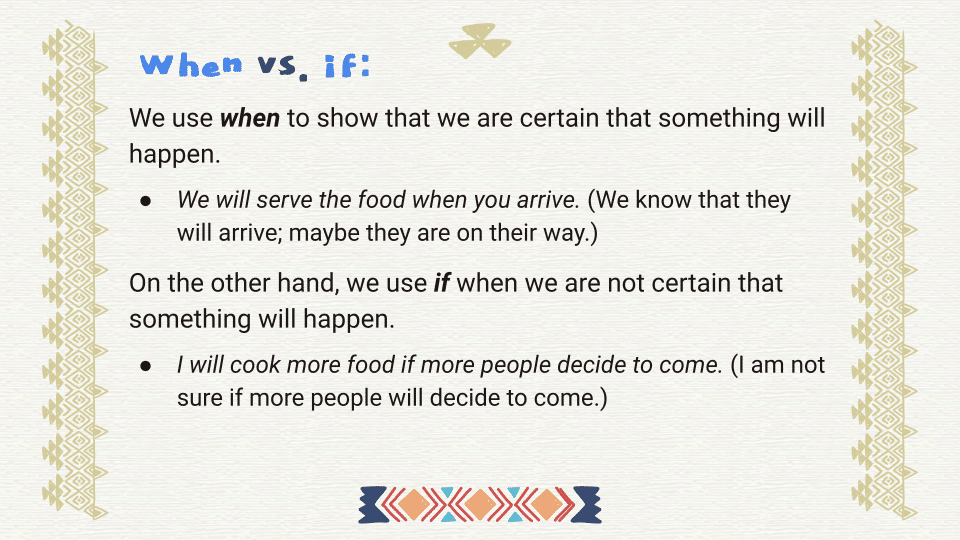
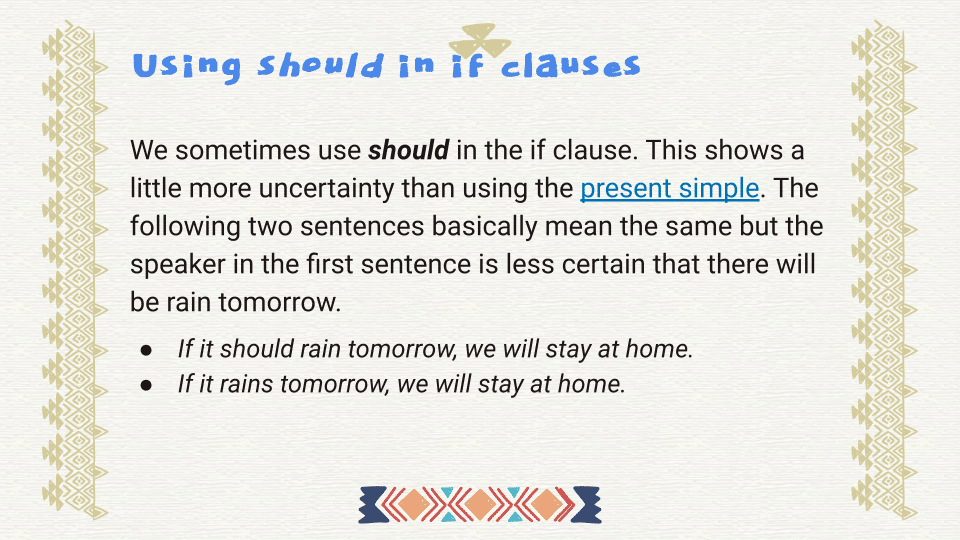
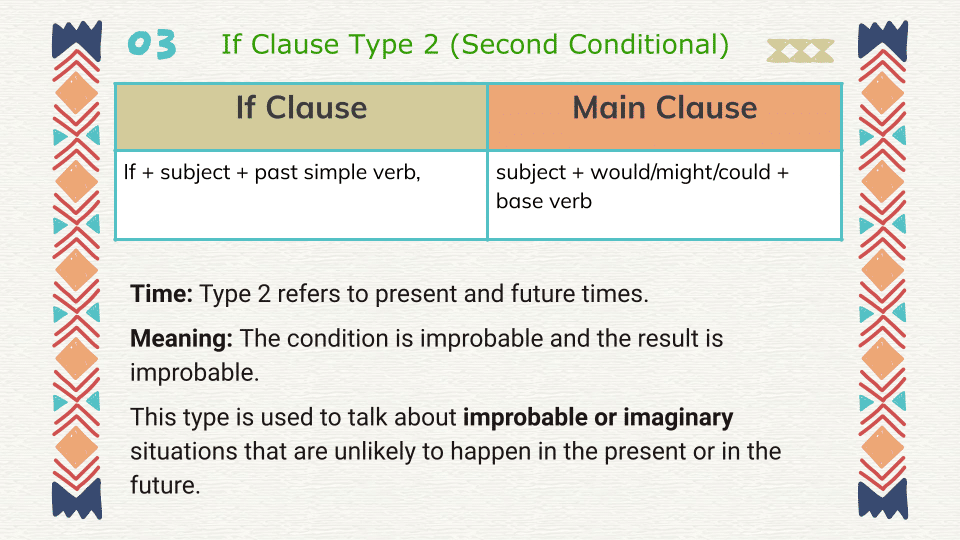
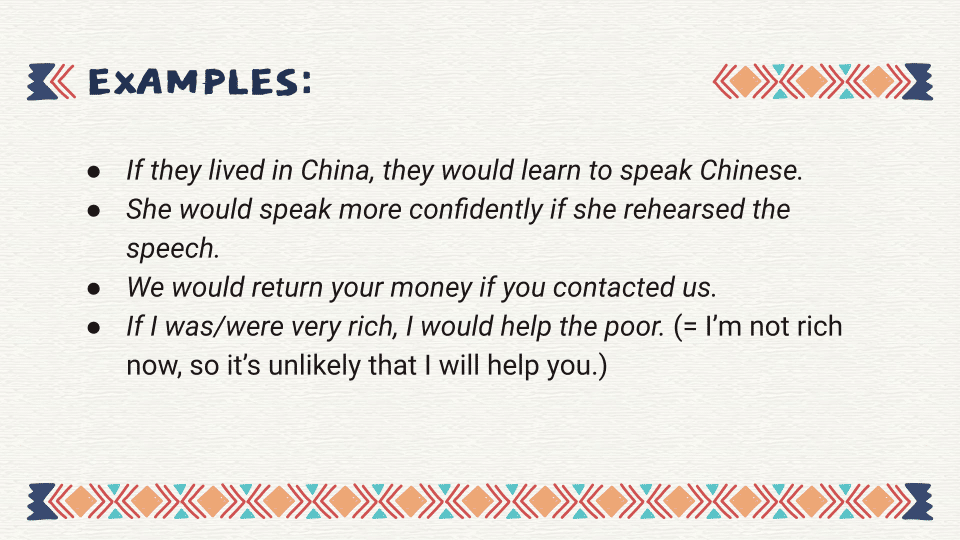
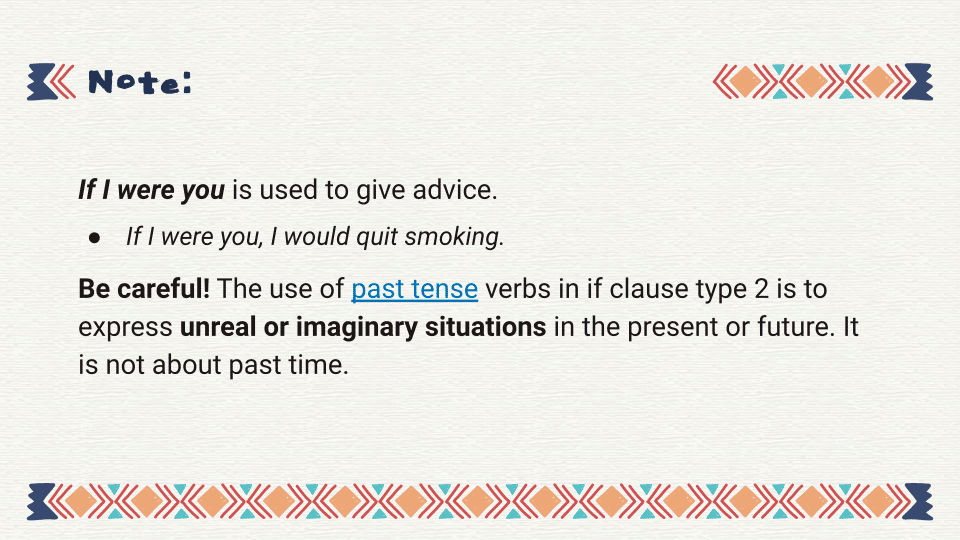
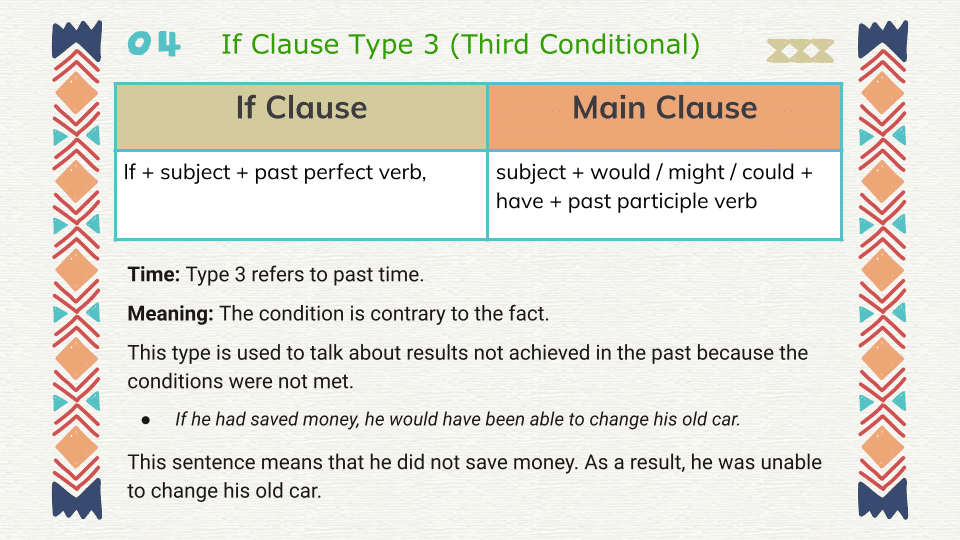
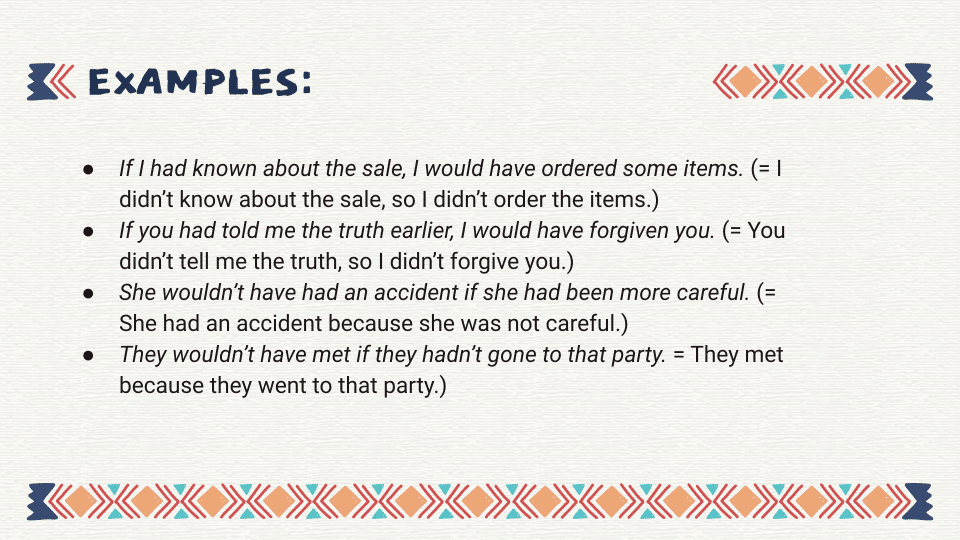
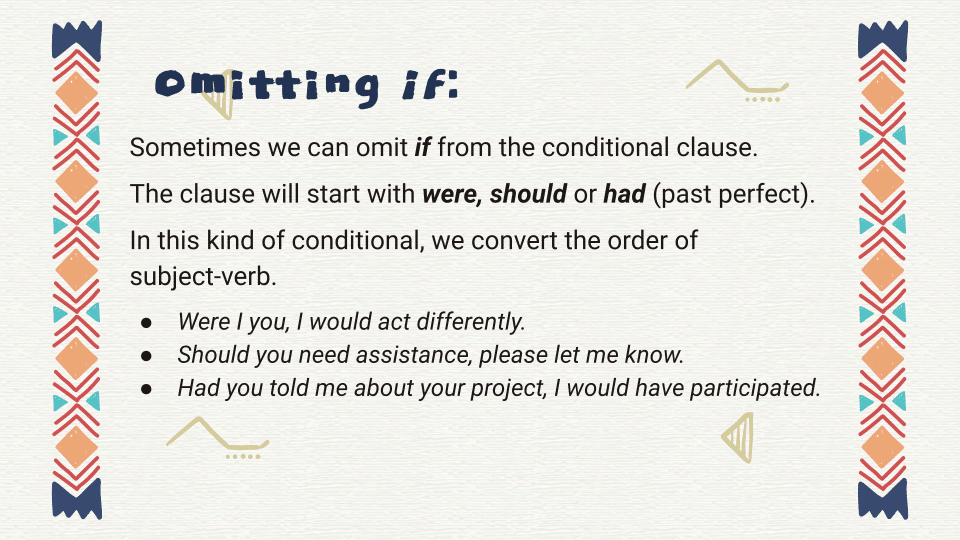
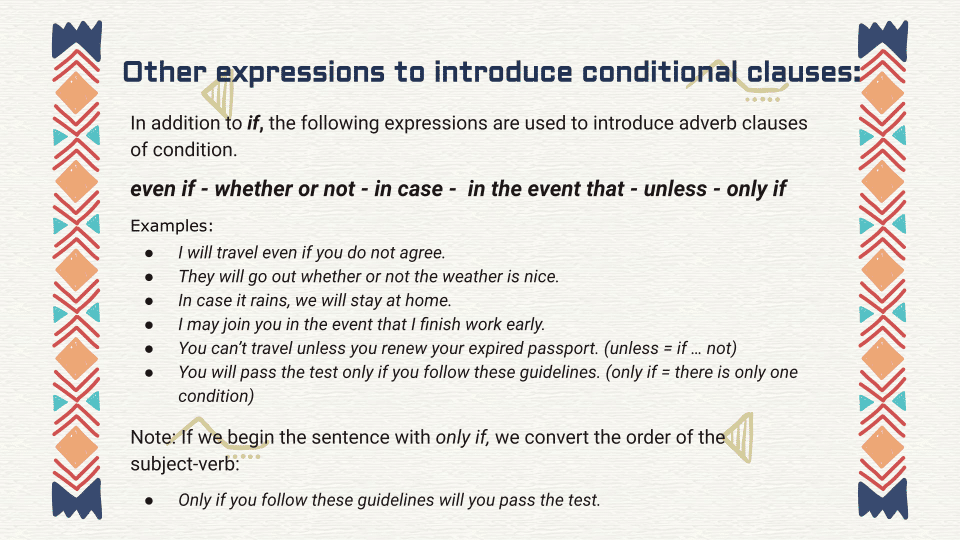

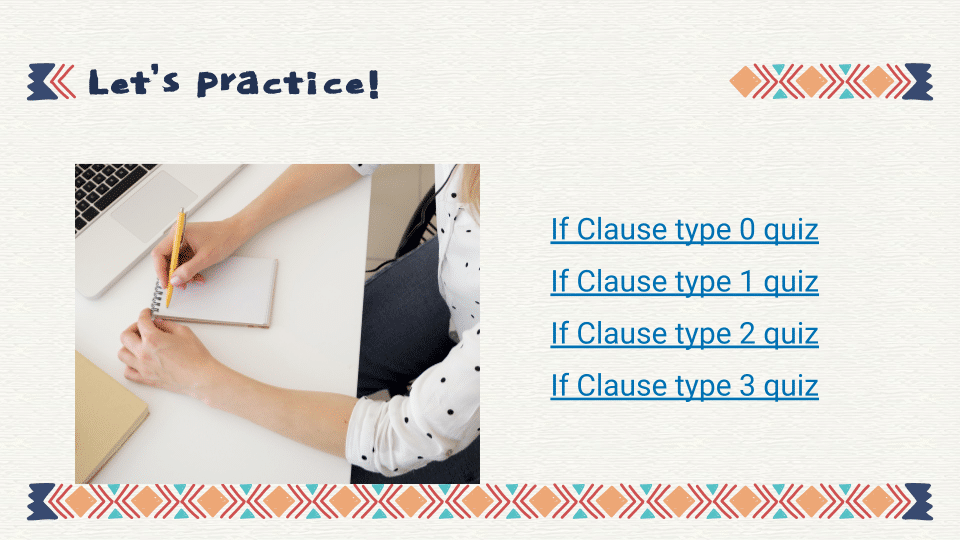
Table of Contents
If Clauses
If clauses (also called “if conditionals”) are clauses that express conditions that have to happen in order for the action in the main clause to happen.
The conditional sentence has 2 clauses:
- if clause = condition (if it snows)
- main clause = result (we will go skiing)
⇒ If it snows, we will go skiing.
We can start with the if clause or the main clause. the difference is in the focus. If we want to focus on the condition, we start with the if clause, but if we are more interested in the result, we start with the main clause.
Typically, w use a comma (,) after the if clause if it we place it at the beginning of the sentence, but we do not need a comma if we start with the main clause.
- If you study hard, you will do well in the exam.
- You will do well if you study hard.
There are four types of if clauses (or conditionals), depending on the possibility of the condition to happen. Each type has a different pattern of verb tenses, which entails difference in the possibility of the condition to happen.
Let’s explore these types and give examples of each.
If Clause Type 0 (Zero Conditional)
The structure of type 0 is shown in this table.
Time: Type 0 refers to all times.
Meaning: The condition is possible and the result is possible.
This type is used to talk about general truths, scientific facts, and habitual activities.
Examples:
- If we heat water, it boils.
- If you water the plants regularly, they grow nicely.
- If you keep food in a hot place, it spoils quickly.
- If she forgets her access card, she uses her friend’s card.
⇔ Take a quiz on if clause type 0.
If Clause Type 1 (First Conditional)
The structure of type 1 is shown in this table.
Time: Type 1 refers to present and future times.
Meaning: The condition is possible and the result is possible.
This type is used to talk about particular possible situations.
Examples:
- If she improves her computer skills, she will get the job.
- We will hold the party inside if it rains tomorrow.
- He may buy a new phone if he gets extra money.
- If you want to learn a language faster, you should practice it daily.
- If I don’t get my car fixed by tomorrow morning, I‘m going to rent a car.
- If anyone calls me, please let me know. (imperative verb)
Like if clause Type 0 above,Type 1 can also express established predictable scientific facts, general truths, and habitual activities.
- If we heat water, it will boil (or boils).
- If the temperature reaches 0° Celsius, water will freeze (or freezes).
But Type 0 is not typically used to talk about a particular situation.
- If they arrive early tonight, they will watch the match with us. (not they watch!)
When vs. If
We can use when to express condition. The sentence structure is the same as that of the if clause.
But the meaning is a little different.
We use when to show that we are certain that something will happen.
- We will serve the food when you arrive. (We know that they will arrive; maybe they are on their way.)
On the other hand, we use if when we are not certain that something will happen.
- I will cook more food if more people decide to come. (I am not sure if more people will decide to come.)
Using should in if clauses
We sometimes use should in if clauses. This shows a little more uncertainty than using the present simple. The following two sentences basically mean the same but the speaker in the first sentence is less certain that there will be rain tomorrow.
- If it should rain tomorrow, we will stay at home.
- If it rains tomorrow, we will stay at home.
⇔ Take a quiz on if clause type 1.
If Clause Type 2 (Second Conditional)
The structure of type 2 is shown in this table.
Time: Type 2 refers to present and future times.
Meaning: The condition is improbable and the result is improbable.
This type is used to talk about improbable or imaginary situations that are unlikely to happen in the present or in the future.
Examples:
- If they lived in China, they would learn to speak Chinese.
- She would speak more confidently if she rehearsed the speech.
- We would return your money if you contacted us.
- If I was/were very rich, I would help the poor. (= I’m not rich now, so it’s unlikely that I will help you.)
Note: If I were you is used to give advice.
- If I were you, I would quit smoking.
Be careful! The use of past tense verbs in if clause type 2 is to express unreal or imaginary situations. It is not about past time.
⇔ Take this quiz on if clause type 2
If Clause Type 3 (Third Conditional)
The structure of type 3 is shown in this table.
| If Clause | Main Clause |
|---|---|
| If + subject + past perfect verb, | subject + would/might/could + have + past participle verb |
Omitting if
Sometimes we can omit if from the conditional sentence.
With the verbs were, should and had (past perfect), we can omit if.
In this kind of conditionals, we convert the order of subject-verb.
- Were I you, I would act differently.
- Should you need assistance, please let me know.
- Had you told me about your project, I would have participated.

